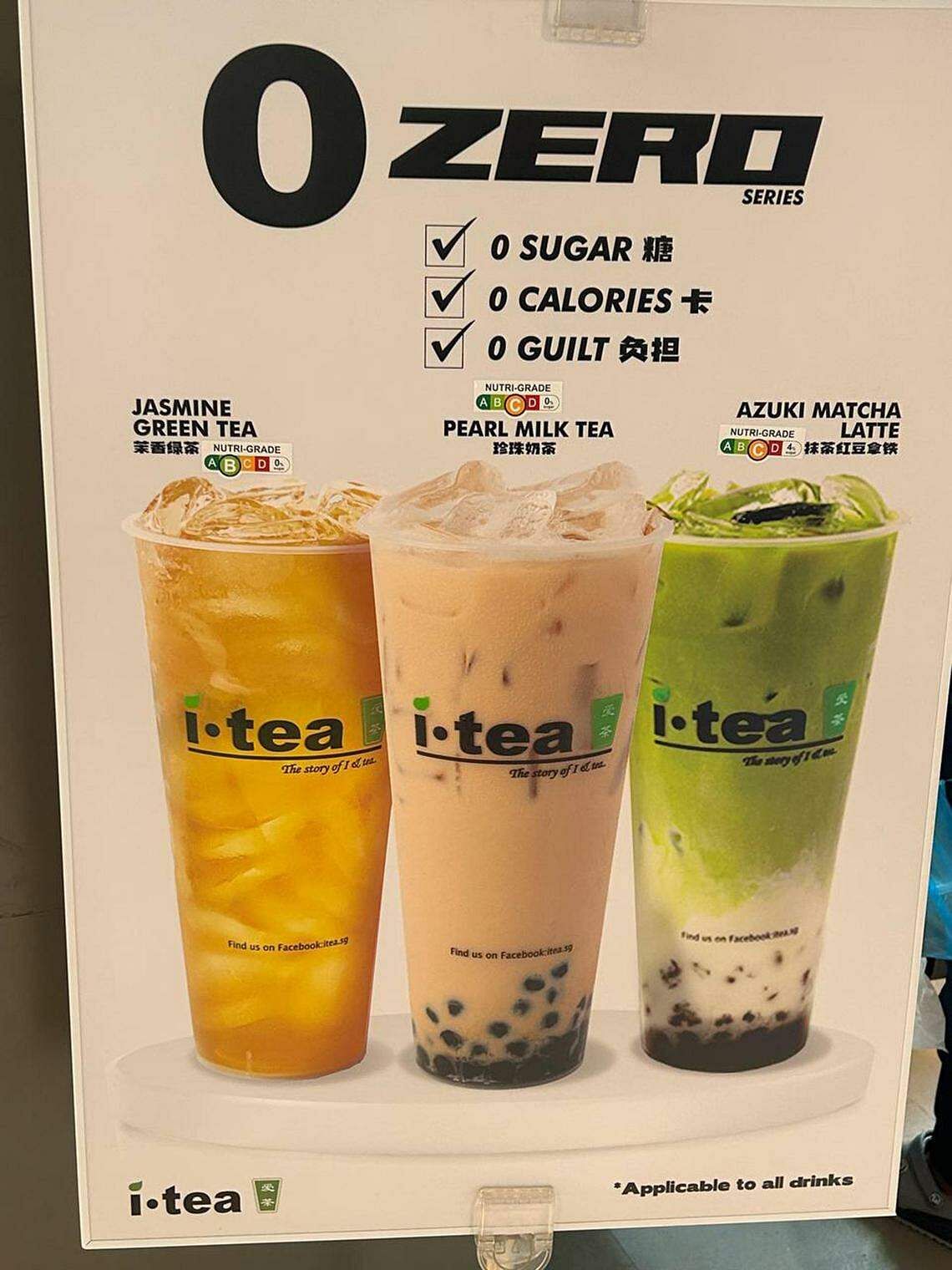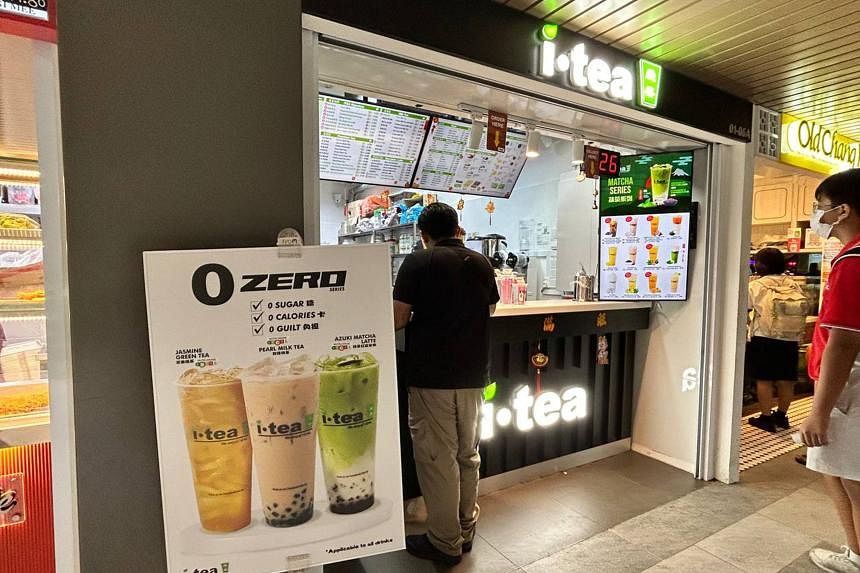SINGAPORE – The health and food safety authorities in Singapore are assessing whether to take action against bubble tea chain iTEA over an advertisement that created the impression that some of its drinks were zero-sugar and zero-calorie, days after the brand pulled the ad from its outlets.
The Straits Times reported on Feb 29 that the ad, which had been put up at 12 of the brand’s 47 outlets from around end-2023 to Feb 29, had bewildered consumers with its confusing and seemingly contradictory claims.
The promotion poster depicts three drinks – jasmine green tea, pearl milk tea and matcha latte with azuki beans – with text saying “zero sugar, zero calories and zero guilt” and that this is “applicable to all drinks”.
In a joint reply to queries from ST, the Singapore Food Agency (SFA) and Health Promotion Board (HPB) said that under Section 17 of the Sale of Food Act, false and misleading ads on food products are not allowed.
If found guilty, offenders could be fined up to $5,000 for the first conviction. For a second or subsequent conviction, they can be fined up to $10,000, or jailed for up to three months, or both.
Consumers were also perplexed by the Nutri-Grade ratings of the drinks on the poster.
The pearl milk tea is rated C with 0 per cent sugar, and the matcha latte with azuki beans is rated C with 4 per cent sugar.
Drinks in the C range have between 5g and 10g of sugar per 100ml, or 1.2g to 2.8g of saturated fat per 100ml.
The bubble tea chain pulled the ad after ST approached it for comments.
iTEA’s senior area manager Lau Jia Li said earlier that the firm had no intention to mislead customers.
The ad was to promote the chain’s “zero-calorie zero-fat sugar substitute”, and that its zero-calorie claim was referring to the sugar substitute, and not the drinks.
The chain had designed the promotion poster with “three of the brand’s favourite drinks” to showcase that the sugar substitute can be added into all its offerings, she said.

As for the Nutri-Grade ratings, Ms Lau explained that its pearl milk tea was rated C due to its saturated fat content of 2.7g per 100ml.
A drink’s Nutri-Grade rating is based on the highest sugar content and saturated fat offered by the brand. If the drink comes with toppings such as pearls or jellies by default, the sugar and saturated fat content in the toppings are counted towards the drink’s rating.
iTEA’s pearl milk tea has 0 per cent sugar as the sugar substitute is used to flavour its tapioca starch pearls, Ms Lau added.
As for the brand’s azuki matcha latte, it was graded C because of the milk content and the 4 per cent sugar is derived from the red bean topping.
Asked about the Nutri-Grade labels used in the poster, the agencies said HPB has sought clarification from the food and beverage operator and requested nutrient information on the three drinks shown.
“Based on the information provided by the operator, the Nutri-Grade labels are consistent with the Nutri-Grade guidelines,” said the agencies.
“HPB conducts regular checks to ensure that the Nutri-Grade labels and nutrition information on drinks are accurate. Supporting documents may be required to substantiate the information, such as laboratory reports.”


